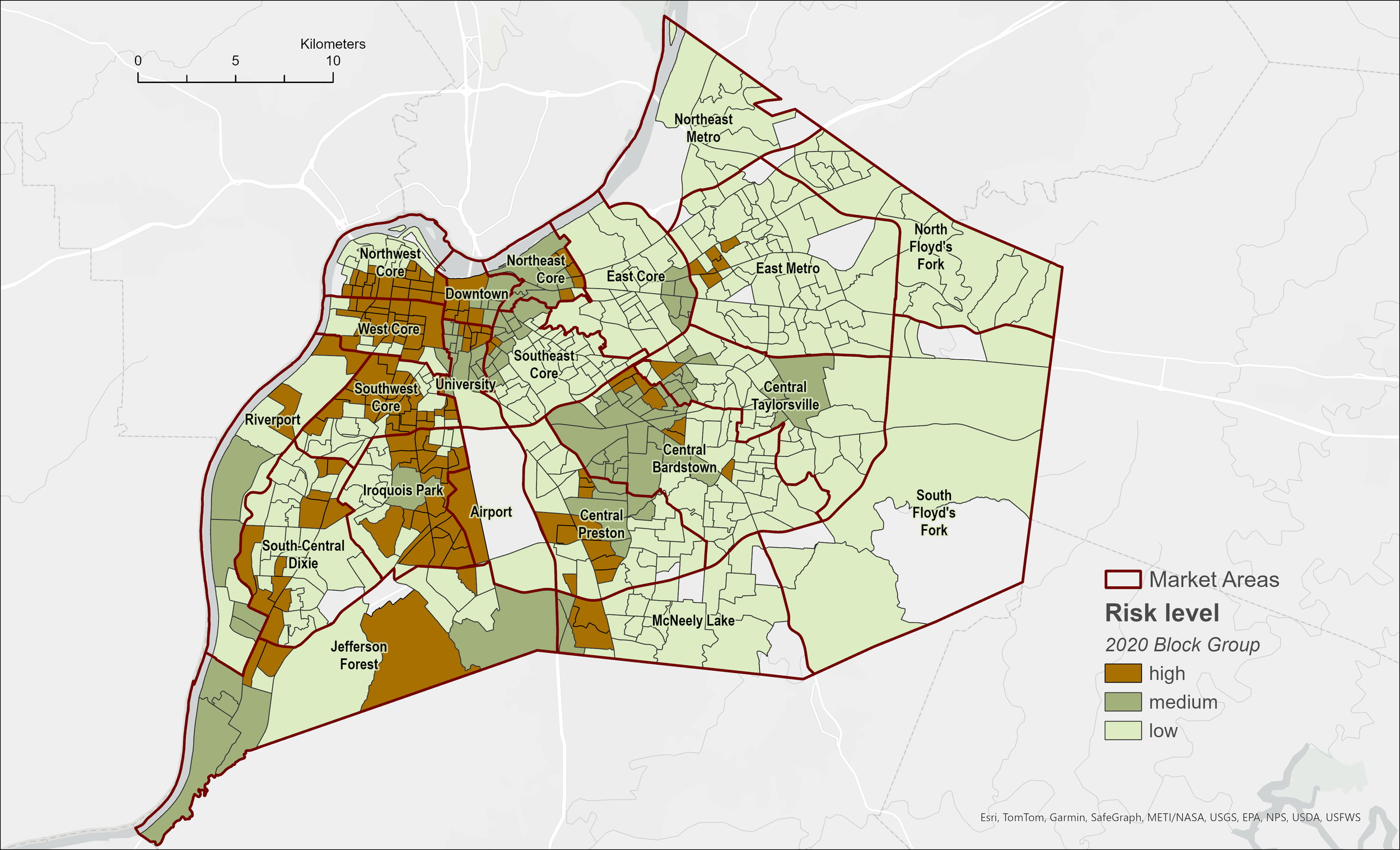LOCAL RESEARCH
Preserving Manufactured Homes as a Source of Affordable Housing in Emma, North Carolina
Emma is a unique neighborhood where affordable housing, cooperative economic development, and solidarity form the backbone of a diverse community. However, Emma’s location, just outside fast-growing Asheville and, specifically, the rapidly gentrifying West Asheville area, the predominance of manufactured homes, and the community’s socioeconomic composition contribute to making the neighborhood is also particularly vulnerable to gentrification and displacement. This report, prepared on behalf of Poder Emma, assessed Emma’s residents’ vulnerability to displacement following the proposal to develop a large townhome project.
Displacement and Housing Need Assessment Tool
Louisville Metro Council approved in November 2024 the use of a tool that would determine which residential projects can receive any type of support from the Metro government. In collaboration with Kenton Card and Loretta Lees, and with the input from the Louisville Office for Housing and Community Development, council members, and community activists, this first-of-its-kind tool was developed to be open source and accessible by all.
The tool mitigates displacement by evaluating, against a set of criteria, how well a newly proposed, publicly supported residential project fits within the local area based on what residents who are housing cost-burdened can afford. While the Metro government has approved the use of the tool, this work is in its early stages, with plans to expand the functionalities of the tool, integrate different data sources, and improve the user interface.
You can read more about the tool here and here. Documentation and Github pages coming soon.
South Los Angeles since the Sixties
Fifty years after residents of South Central made it impossible to ignore the inequality between Black and White residents of Los Angeles, has any progress been achieved? This project used census surveys from 1960 to 2019 to assess changes in material inequality between South Los Angeles and the rest of the county.
Despite significant improvements to the neighborhood brought about by community advocates and organizers, the socioeconomic position of South Los Angeles residents relative to the county has hardly changed. Employment, wages, access to transportation, and education continue to lag.
Impact of COVID-19 on small ethnic business
COVID-19 has hit Asian, Black and Latino communities in Los Angeles especially hard. This project focuses on the resilience of small independent businesses. Using a large data set of cell phone location data, we assess activity at small businesses in three neighborhoods: Chinatown, Boyle Heights, and Leimert Park.




